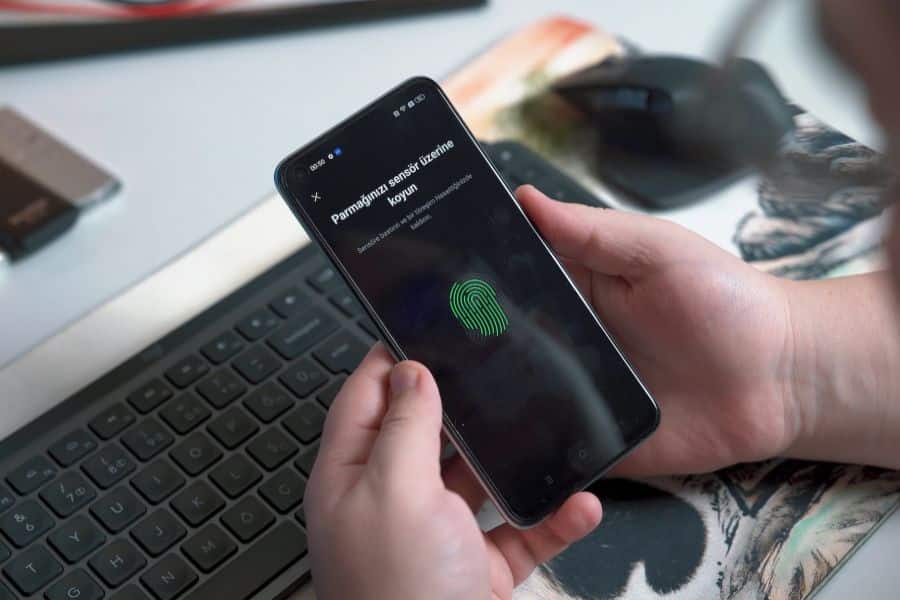
In today’s digital age, where online interactions and transactions have become the norm, ensuring the security and authenticity of user information is of paramount importance. One effective method that has gained widespread adoption is phone verification.
By validating users through their mobile phones, businesses and platforms can significantly enhance security measures and reduce the risks associated with fraud, identity theft, and unauthorized access. Phone verification also presents its own set of challenges. In this blog post, we will delve into the ten compelling reasons why verification by phone matters, examine its benefits and address the challenges it poses.
Enhanced Security And Fraud Prevention
The foremost reason phone verification matters is its ability to bolster security and prevent fraudulent activities. By verifying users’ phone numbers, businesses can ensure that the person interacting with their platform or service is legitimate and minimize the risk of unauthorized access.
Phone verification acts as a strong deterrent against fraudulent activities, such as account takeovers, identity theft, and fake account creation. It adds an extra layer of security by linking user identities to their mobile numbers, making it significantly harder for malicious actors to impersonate legitimate users.
Protection Against Account Takeovers
Account takeovers have become increasingly common, leading to significant financial losses and reputational damage for businesses. Phone verification can play a crucial role in mitigating this threat. By requiring users to verify their phone numbers during the account creation process or when accessing sensitive information, businesses can ensure that only authorized individuals gain access to user accounts.
Even if an attacker manages to acquire a user’s login credentials, they would still need access to the associated phone number to bypass verification by phone, making the takeover significantly more challenging.
Stronger User Authentication
Passwords alone are no longer sufficient to protect user accounts from unauthorized access. Many individuals reuse passwords across multiple platforms or choose weak passwords, making their accounts vulnerable to hacking attempts. Phone verification provides an additional layer of authentication by requiring users to verify their identities through a one-time password (OTP) sent to their registered mobile numbers.
This method ensures that users possess both the correct password and physical access to the linked mobile device. As a result, even if an attacker manages to obtain a user’s password, they would still require the OTP sent to the associated phone number, making it significantly more difficult to compromise the account.
Reducing Fake Account Creation
Fake accounts pose a significant challenge for businesses and online platforms, leading to issues such as spamming, trolling, and data manipulation. Phone verification helps combat this problem by making it more difficult for individuals to create multiple fake accounts.
By linking each user account to a unique phone number, platforms can prevent users from creating multiple accounts using the same phone number, effectively curbing fake account creation. This measure adds an extra level of accountability, as users are less likely to engage in malicious activities when their identities are tied to their phone numbers.
Reliable Two-Factor Authentication
Two-factor authentication (2FA) has gained popularity as an effective way to secure user accounts. Phone verification serves as a reliable and convenient method for implementing 2FA. By requiring users to verify their identities through a code sent to their registered phone numbers, businesses can add an additional layer of security to the login process.
This method ensures that even if an attacker has access to a user’s password, they would still need physical possession of the user’s mobile device to complete the authentication process. Verification by phone as a form of 2FA offers a balance between security and usability, providing users with a straightforward yet robust method of securing their accounts.
Enhanced Trust And User Confidence
In the digital realm, trust and user confidence are crucial for the success of any online business or platform. Phone verification plays a significant role in building this trust by verifying the authenticity of user information. When users see that a platform employs phone-based authentication, they gain confidence in the platform’s commitment to security.
It signals that the platform takes steps to protect user data and prevent fraudulent activities. The presence of phone verification can also deter malicious actors, making the platform less attractive to potential fraudsters. By prioritizing security and user trust, businesses can foster a positive reputation and establish long-term relationships with their users.
Compliance With Regulatory Requirements
Various industries are subject to strict regulatory requirements regarding user data protection. Phone verification can help businesses meet these obligations by implementing robust security measures.
For example, the General Data Protection Regulation (GDPR) in Europe emphasizes the importance of protecting user information and requires organizations to take appropriate measures to ensure data security. By implementing phone verification, businesses demonstrate their commitment to compliance and safeguarding user data.
Phone verification can also help in sectors such as finance, healthcare, and e-commerce, where compliance with identity verification regulations is essential. By adhering to regulatory requirements, businesses can avoid legal consequences and build trust with their users.
Mitigating The Risk Of Sim Swap Fraud
SIM swap fraud occurs when an attacker convinces a mobile network provider to transfer a victim’s phone number to a new SIM card under their control. This allows the attacker to intercept sensitive information and gain unauthorized access to various accounts tied to the victim’s phone number.
Phone verification can help mitigate this risk by requiring users to verify their phone numbers during critical interactions, such as changing account settings, accessing financial information, or initiating transactions. By doing so, businesses add an extra layer of protection against SIM swap fraud, as attackers would need physical possession of the user’s mobile device to complete the verification process successfully.
Addressing Privacy Concerns
Phone verification raises valid privacy concerns, particularly regarding the collection and storage of user phone numbers. However, when implemented properly, phone verification can strike a balance between privacy and security. Businesses should adopt privacy-conscious practices, such as securely storing phone numbers, implementing data protection measures, and ensuring compliance with relevant privacy regulations.
Additionally, offering alternative verification methods, such as email verification or social media verification, can provide users with more options and alleviate privacy concerns. Open communication and transparency regarding data handling practices can help build trust with users and address their privacy concerns effectively.
Mobile-First User Experience
In an increasingly mobile-centric world, phone verification aligns seamlessly with the mobile-first user experience. Most individuals carry their mobile phones with them at all times, making phone verification a convenient and readily accessible method of user authentication. Unlike other verification methods that may require additional hardware or authentication apps, phone verification leverages the widespread use of mobile phones to provide a frictionless authentication process.
This user-friendly approach not only enhances security but also improves the overall user experience, reducing the time and effort required for account verification. By embracing phone verification, businesses can cater to the preferences and habits of their mobile-oriented user base.
Conclusion
Phone verification offers numerous benefits for businesses and online platforms seeking to enhance security, protect user data, and foster trust with their users. Despite the challenges it poses, such as privacy concerns and implementation complexities, the advantages of phone verification far outweigh the drawbacks. By implementing phone-based verification, businesses can effectively combat fraud, reduce fake account creation, and provide users with a reliable and user-friendly authentication experience. In an era where online security is paramount, phone authentication is a crucial tool that businesses should leverage to safeguard their platforms and build trust with their users.








